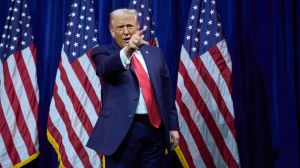Stay updated with the latest - Click here to follow us on Instagram
Point of No Return
The Delhi air is back to being as bad as it was in the ’90s and the government's efforts to phase reduce vehicular emissions have failed.
By: Leher Kala
There is an app called Pollution on iTunes that tells you about the quality of air you’re breathing. It’s pretty depressing if you’re living in an Indian city so download it at your own peril. In Delhi, the concentration of respirable particulate matter usually hovers at three times the permissible count. Air in Delhi is back to being almost as bad as it was in the ’90s — pre-CNG days. The effort of the government to phase out smoke spewing buses has been undone by the number of personal diesel vehicles on the roads. The subsidy on diesel, meanwhile, ensures their popularity and our certain ill health.
ENT and respiratory doctors in this city are thriving. I headed back to mine last week, a jovial, charming man who has just upped his rate from Rs 1,000 to Rs 1,400 for a consultation. I kill time trying to calculate his earnings by counting the number of people in the waiting room who are coughing, wheezing or sniffling. I’m convinced he might be a dollar millionaire. I’m reminded of a 35-year-old businessman I know who’s been asthmatic most of his life.
Last year, he went on holiday to Australia where his breathing issues magically vanished and he didn’t need an inhaler for the first time in two decades. This was clearly such a liberating experience that when he got back to India he told his startled father he was moving. He is currently immersed in immigration issues undaunted by the challenge of starting out afresh in a new country. Another neighbour of mine, a doctor in his 50’s decided to migrate to Canada.
He has everything here and his reasons for leaving seem trivial such as not having access to nice public spaces or a suitable environment to go for a walk. He did several recces, found employment in a hospital, a school for his kids, packed up and left. He was back in six months because his family hated it, but he tells me he would do it again, in a heartbeat.
There is a sudden awakening among the wealthy in India that quality of life means more than driving Jaguars or travelling first class to exotic destinations. Culture, education and climate or even just clean, healthy air are now perfectly acceptable reasons to move countries. Indian cities have not kept up with the success of the one per cent who can afford to be discerning about every aspect of life. The idea of relocation is not restricted only by opportunity or economic necessity but something more indefinable that questions the very concept of what home actually means. Is it a place? Or a person, like the Billy Joel song You’re my home. Or is it somewhere you may not have a history but the option of creating the kind of life you’ve always dreamt of?
As writer Pico Iyer puts it very succinctly, in a Ted talk called Where is home? “Home has less to do with soil, more with soul.” Over 220 million people in the world live in countries other than their own. Most might not be out of choice, but there is a growing number of people who are choosing to explore rootlessness for a better life.
Identity and home have been constant themes in Indian literature and film, in songs like Mere desh ki dharti or much later, the Shah Rukh Khan film Swades. At the time they assailed us with haunting nostalgia but the patriotism they evoked, I suspect, no longer holds, since home is now also seen as a multidimensional concept, not necessarily the place you grew up or studied in.
Technology allows you to conduct business from anywhere. The migration patterns of the wealthy are still emerging but it appears when the rich in China want to immigrate they choose America. The Russians like England so much so, its jokingly referred to as ‘Londongrad’. Rich Indians too, like London, and Singapore. It’s not just about going to where you get the most bang for your buck, tax wise, but also about which country lets you live the best you can.







